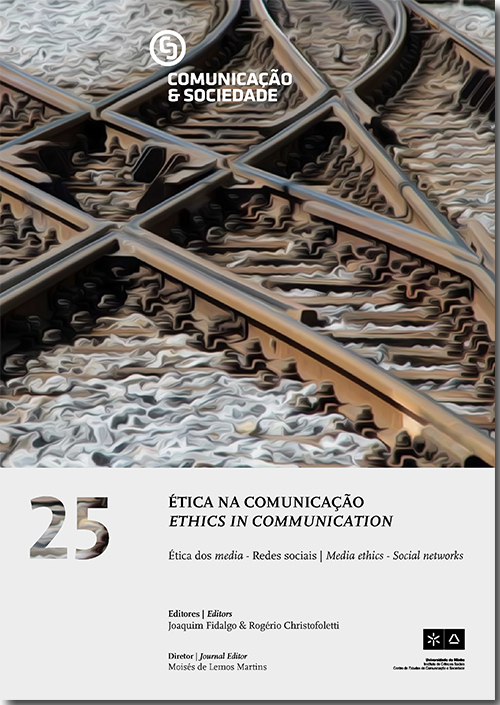New challenges for an enduring code of journalistic ethics: the news media business model in the face of ethical standards and citizen participation
DOI:
https://doi.org/10.17231/comsoc.25(2014).1862Palavras-chave:
Ethics, media, self-regulation, standard, transmedia journalism, social mediaResumo
Technological advances have modified news media practices, introduced alternative formats for conveying information, and are transforming journalistic messages. However, the essential principles governing journalistic practice, those which the ethical codes support and enshrine, remain unaltered. The media outlets and journalists are not unaware of the necessary adaptations to their working lives which this situation demands, but editors and managers find it difficult to accept, and therefore incorporate, those emerging trends which would permit a real improvement in the quality of the products they create and offer to society: firstly, the introduction of ethical standards (ISO standards, ethics seals) into production, and secondly, the channelling of citizens’ active participation in the reporting process (transmedia storytelling, social media). These are only being assimilated slowly and ineffectively. The media sector business model has to embrace and integrate both these realities into its organization and production system in order to survive and truly fulfil its public service mission.
Downloads
Downloads
Publicado
Como Citar
Edição
Secção
Licença
Os autores são titulares dos direitos de autor, concedendo à revista o direito de primeira publicação. O trabalho é licenciado com uma Licença Creative Commons - Atribuição 4.0 Internacional.












